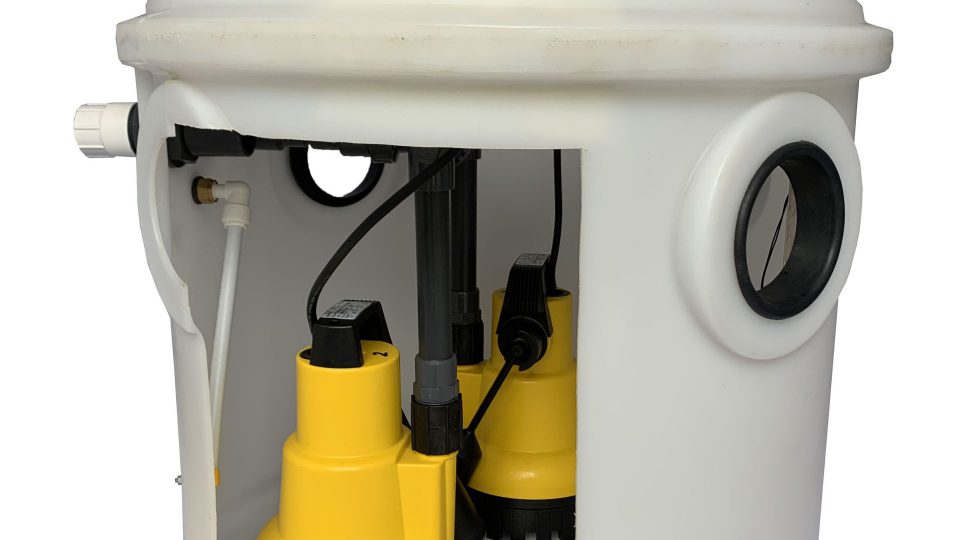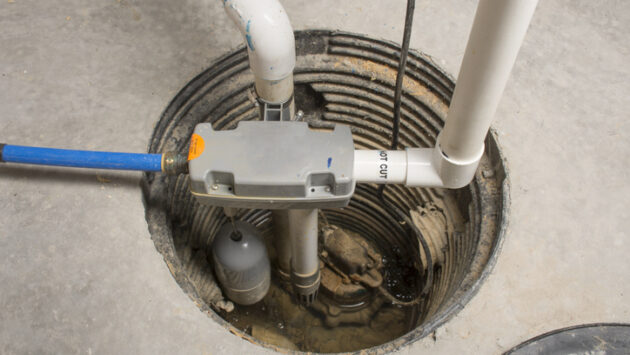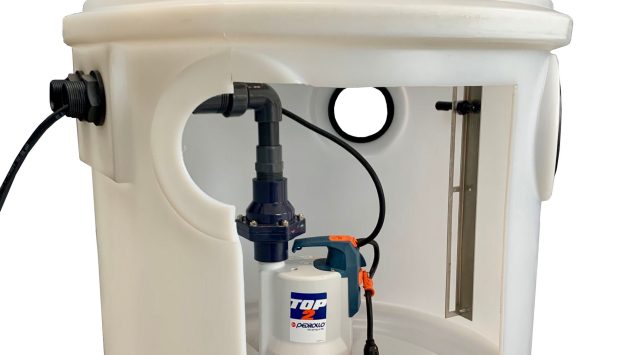Finding the best sump pump for your basement or cellar: what do you need and why?
If you have a basement or cellar prone to flooding, installing a sump pump is the best way to keep your home clean or dry. However, with so many factors to consider, choosing the right sump pump for your basement or cellar can be tricky.
In this blog, we’ll cover everything you need to know about choosing the right sump pump to protect your home. We’ll include:
- What is a basement or cellar sump pump?
- How does a sump pump work?
- Why are sump pumps important?
- What sump pump is best for a basement or cellar?
What is a basement or cellar sump pump?
A sump pump is essential for basements or cellars that sit below the water table and are prone to flooding. During a storm or a period of heavy rain, water can enter your basement through the wall or cracks in the foundations. When water levels start to rise, your sump pump will activate and pump the flood water away from your home.
How does a sump pump work?
Sump pumps are always installed in the lowest part of your basement, typically in a hole in the concrete floor, referred to as the sump pit.
When the water level in the sump pump reaches a pre-set level, the pump will switch on when the float switch activates it. This float switch works similarly to a toilet tank. The pump will automatically activate once the float rises to the specified level.
The water is pumped out of the pump through the outlet, into the discharge pipe and finally out of the discharge point (such as a communal drainage point or pond). Ideally, the water should be pumped at least 10 feet from your foundations to ensure your home is safe from further flooding.
Why are sump pumps important?
If your home is prone to flooding, a sump pump is an essential safety feature to keep your house safe and dry.
A sump pump is the best way to prevent costly water damage in your cellar or basement. If your basement floods, fixing the water damage can cost thousands of pounds. Installing a sump pump is a preventative solution, so you don’t have to stress about your home flooding.
They can also help prevent mould from growing in your basement. Mould prefers damp conditions, so by keeping your basement dry and preventing standing water, there is virtually no chance of harmful mould building up.
What sump pump is best for a basement or cellar?
Choosing the right sump pump for your basement or cellar is easier said than done. You’ll need to consider five main factors when choosing a suitable basement sump pump.
Pedestal vs. submersible sump pump
When choosing a sump pump, you have two choices: a pedestal or a submersible pump.
A pedestal pump has its motor above the sump pit, keeping it dry. This means pedestal pumps typically have a slightly longer lifespan than submersible pumps. However, pedestal pumps take up more space and are less powerful than submersible options, making them unsuitable for most basement or cellar applications.
A submersible sump pump is the preferred option. This waterproof pump is placed inside the sump pit and can provide enough power to deal with most volumes of water. It can also be used with various water types and takes up less space than a pedestal pump.
Water type
You’ll also need to consider which type of water your sump pump will need to drain. Draining clean water and rainwater is something that all sumps pumps can handle, but if you need to pump away water containing debris or sewage water, you’ll need to select a pump that can handle it.
Maximum flow rate
One of the biggest factors you need to consider is the maximum flow rate of your basement pump. This will depend on the amount of water you’ll need to process. The max flow rate is usually expressed in litres per hour (l/h) or cubic metres per hour (m3/hr) and refers to the maximum amount of water the pump can remove from the sump basin each hour. The diameter of your pump’s outlet will impact your pump’s flow rate.
If your area is prone to extreme flooding or your home sits below the water table, you’ll need a pump that can handle a larger volume of water. The soil your home sits on can also impact your choice of pump flow rate. Sandy soil typically requires a higher capacity than dense clay.
Maximum head
You’ll also need to think about the maximum vertical distance the pump needs to lift water, which is referred to as the maximum head. Be aware that the maximum flow rate and max head work against each other – you won’t be able to pump water at the maximum vertical distance and benefit from the maximum flow rate.
Pump accessories
You should consider what accessories you’ll need for your basement or cellar sump pump. Most pumps should come with a float switch, but if not, you’ll need to purchase one separately.
Another valuable accessory is a high-level alarm, which alerts you to high water levels in your sump pit, which might indicate something is wrong with the pumping station. This allows you to take action before any damage occurs.
If you frequently experience power outages during storms, a battery backup sump pump is an essential purchase. This will allow your sump pump to continue functioning, even if there is a power outage, giving you peace of mind that your home is still protected.
Basement and cellar pumping stations
Sumps and Pumps offers a wide range of sump pumps designed for cellars and basements. All our sump pump systems include a chamber and submersible water pump for maximum efficiency and pumping capacity.
We stock various types of sump pumps, including single and dual pump systems, depending on the power you require and the amount of water your sump pump will need to handle. If you deal with high volumes of water or your property sits below the water table, a twin pump system is recommended as it can deal with higher volumes of water. One pump can also function as a backup, so your basement or cellar stays protected if one pump fails.
You can choose from our budget-friendly pumping stations, which require some assembly or our professional, ready-to-go cellar sump pump stations. Many of our cellar pumping stations feature a squat chamber for easy sump pump installation.
We also offer high water level alarms, battery backups, pump control panels, and waterproofing products, so you can rely on us for all your sump pumping needs.
Browse our full range of sump pumps, pumping stations and accessories in our online shop. Or, if you’d like more guidance on the best sump pump for your basement, please contact our team.


